Seagate FireCuda 2TB HD Review: This Drive is on Fire...Cuda
/It’s been 11 years since Seagate brought their very first Hybrid Drive, the “Momentus PSD” to the market. While the first iteration wasn’t exactly well received, it gave longtime customers a glimpse into the future. Things started to pick up in 2011 with the release of Seagate’s “second-generation Solid State Hybrid Drive” series, which promised to bridge the speed and price gaps between conventional Hard Disk Drives and Solid State Drives.
Being an eager adopter, I quickly got my hands on the 1TB model of Seagate’s Solid State Hybrid Drive the week it became available, immediately transferring all my games and school/work files, and relegating my old Hard Disk Drive to storage duty - it was a big change, but one I haven’t regretted for a second.
It’s been seven years since then. Seagate recently unleashed its new FireCuda line of Hybrid Drives. Boasting faster speeds than their predecessors, these new drives were meant to even further narrow the speed gap between Hybrids and SSDs.
Being a satisfied customer of Seagate’s second-generation line, I quickly jumped on the chance to do a comparative review, putting a Solid State Drive, FireCuda, and Solid State Hybrid Drive to the test in order to see how far we’ve come in seven years.
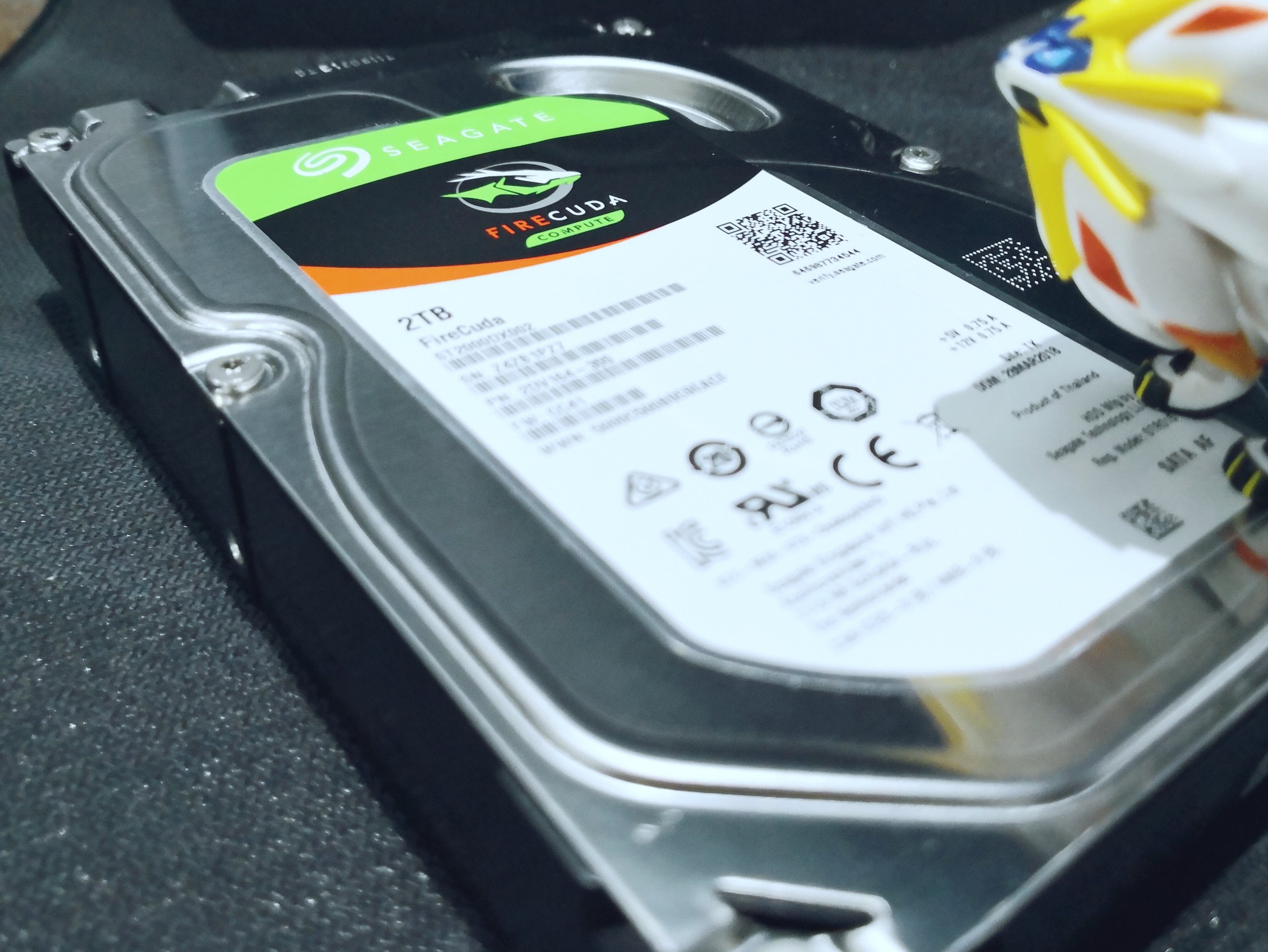
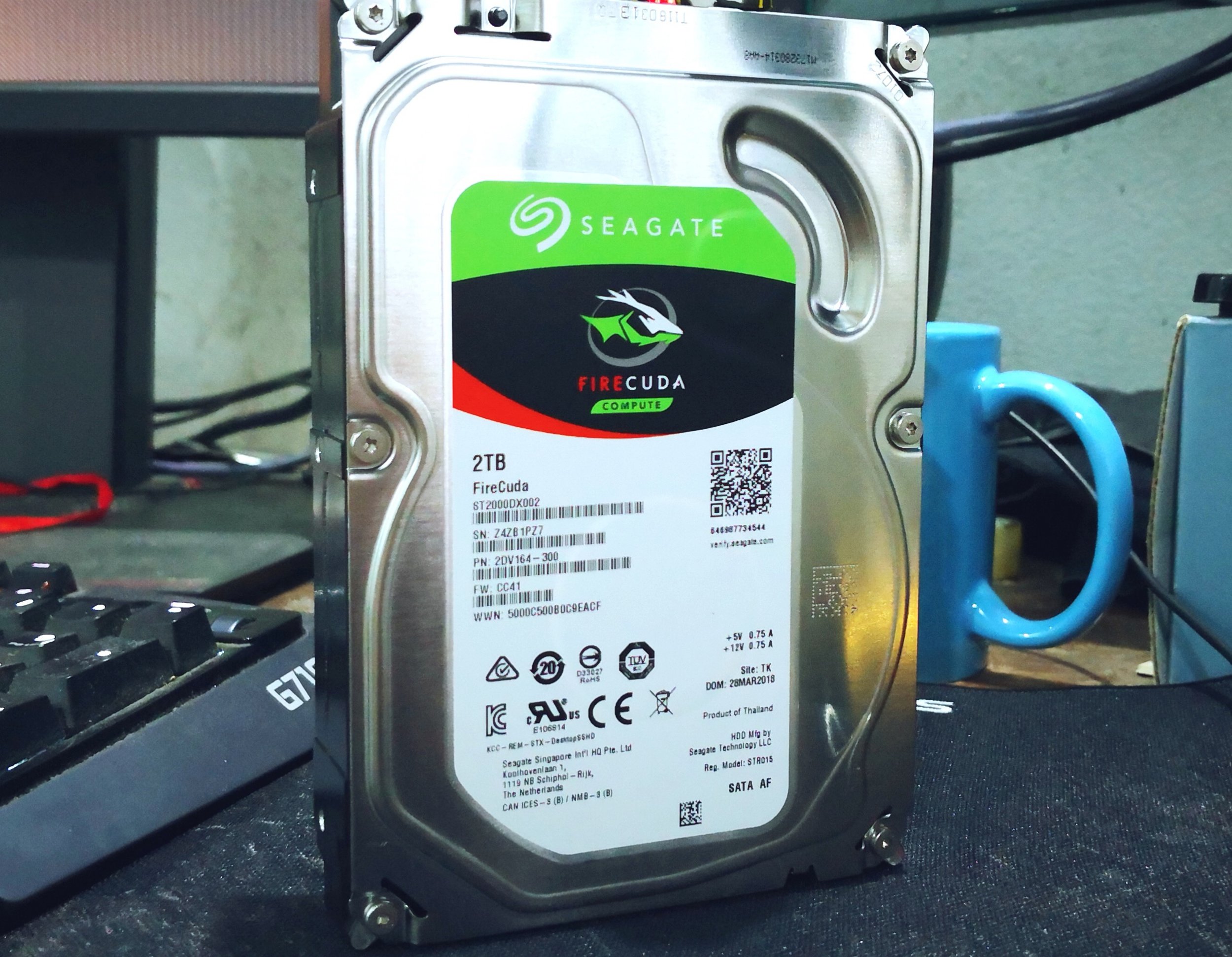
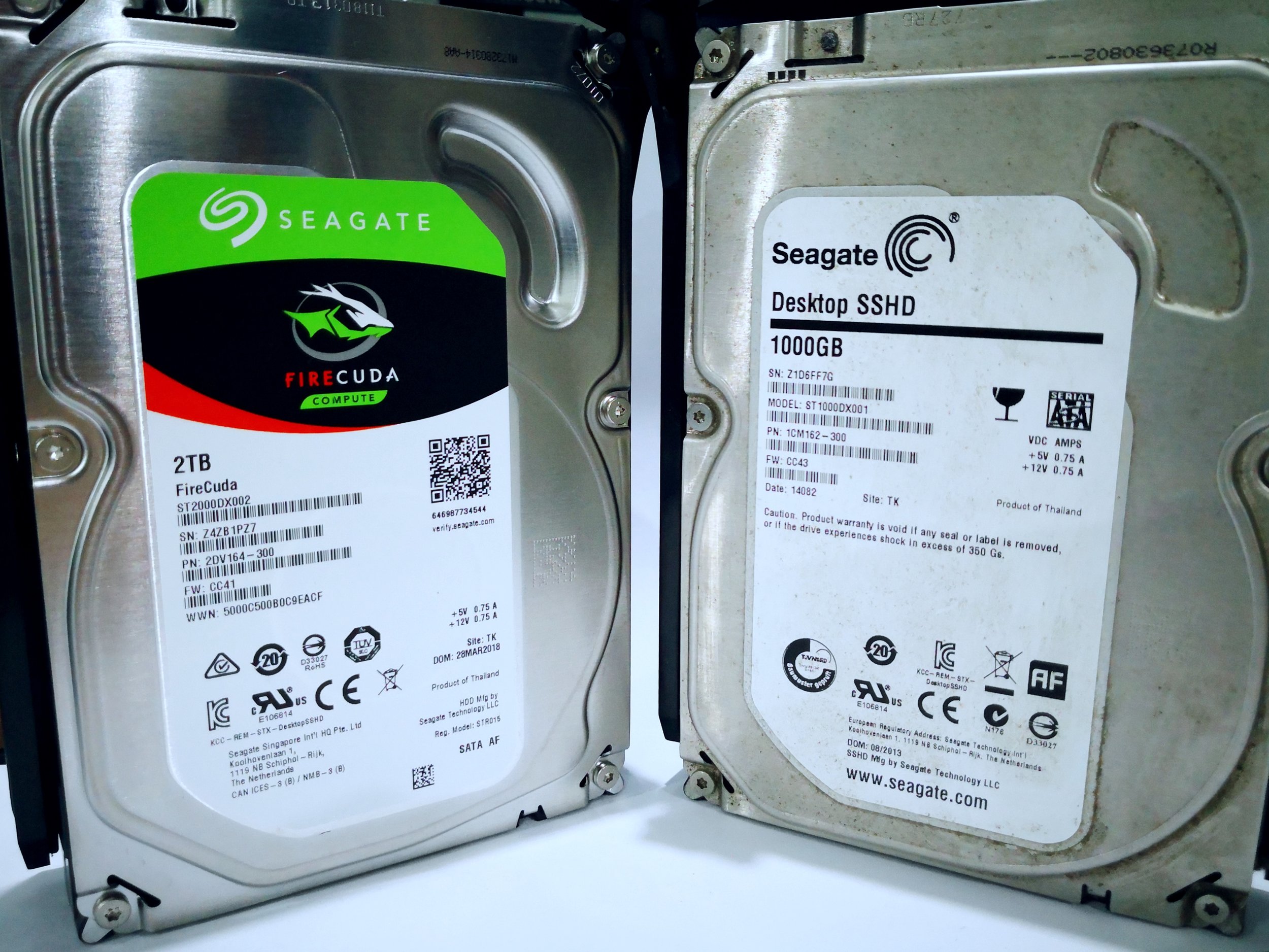
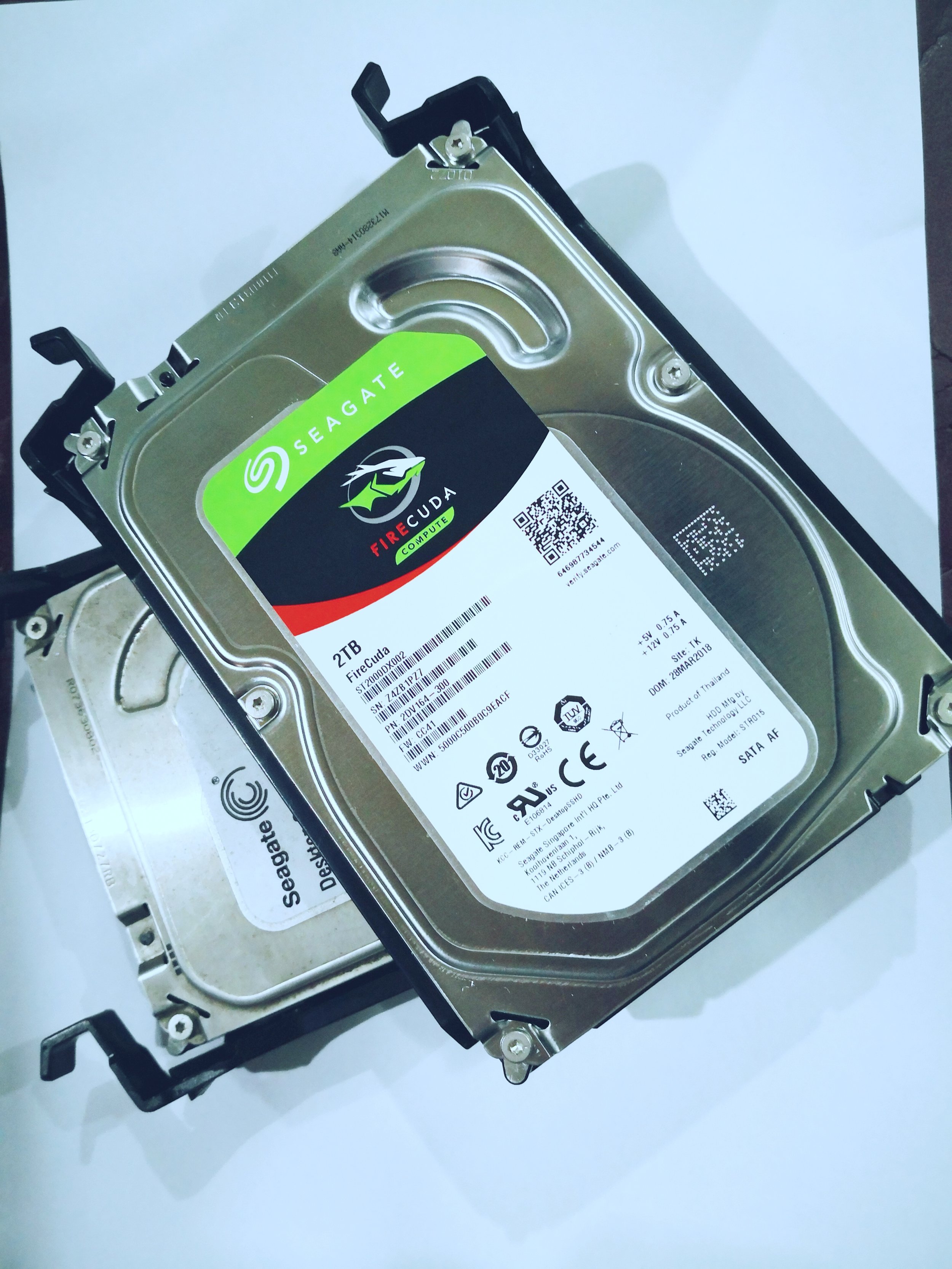
(53GB) Large Folder File Transfer Test
While games may be the order of the day here at TMG, a plain old file transfer test is actually the best way to see how well drives match up, since file transfers don’t rely on the rest of your computer (CPU, RAM, etc) as much as they do the raw power of your drives.
Test 1 (Transfer to SSD)
FireCuda to SSD: ~6m26s
SSHD to SSD: ~6m28s
Test 2 - (Transfer to SSHD)FireCuda to SSHD: ~9m37s
SSD to SSHD: ~10m07s
Test 3 - (Transfer to FireCuda)SSD to FireCuda: ~6m47s
SSHD to FireCuda: ~7m32s
Let’s get this out of the way; the current FireCuda and SSHD lineup will never match the speeds of an SSD for obvious reasons. But as the test suggests, with a two-second lead, the FireCuda is marginally faster than its predecessor in sending files out to other storage mediums. However, its true strength lies in receiving files, which it does almost a minute faster than the SSHD.
Simultaneous Transfer Test
We decided to do two simultaneous transfers to see if the large folder transfer test results hold true. The simultaneous transfer of Batman: Arkham Knight netted in a marginal win for the FireCuda with a 2% lead. What took us by surprise was the surprisingly huge lead the FireCuda took during the simultaneous transfer of Monster Hunter World. While it started off with the same 2% lead, the FireCuda soon ramped up to 10%, its speed continually increasing to a maximum of 50% faster towards the end, finally leaving the SSHD in its wake at 49% completion.
Game Loading Times
For this test, we decided to use two games notorious for their loading times, as well as a recent game that all the cool kids are playing.
The Witcher 3, whose loading times infamously bring potatoes to their knees, was the first gauntlet. We decided to go from the title screen to Novigrad for this test.
Witcher 3 load time test
SSD: 27s21ms
FireCuda: 33s90ms
SSHD: 55s83ms
Batman: Arkham Knight, another game with a reputation among the PC gaming world (albeit for more reasons than loading time) was chosen to be second in the gauntlet. The test results were from the application startup to loading into Gotham.
Batman: Arkham Knight load time test
SSD: 39s27ms
FireCuda: 44s28ms
SSHD: 51s70ms
Monster Hunter World for PC is a brand new release. While Internet connection will usually be more of a limiting factor than HDD speed for this one, we thought it’d be prudent to get an online game in the mix to give folks who play online a lot a point of reference. Results are based off application startup to loading into the world.
Monster Hunter World load time test
SSD: 34s98ms
FireCuda: 39s14ms
SSHD: 39s73ms
While still not quite an SSD in terms of speed, the brand new Seagate FireCuda drives are a clear improvement from both of its predecessor lines, and are a good deal at only a fraction of the cost of a 2TB SSD.
Test PC
MSI Z170A Gaming M3
Intel 6600K, stock config
8gb Kingston HyperX DDR4
Asus ROG GTX 1070Ti
Samsung 840 SSD (OS drive)
x2 Sandisk SSD Plus
Seagate SSHD ST1000DX001
Seagate FireCuda ST2000DX002







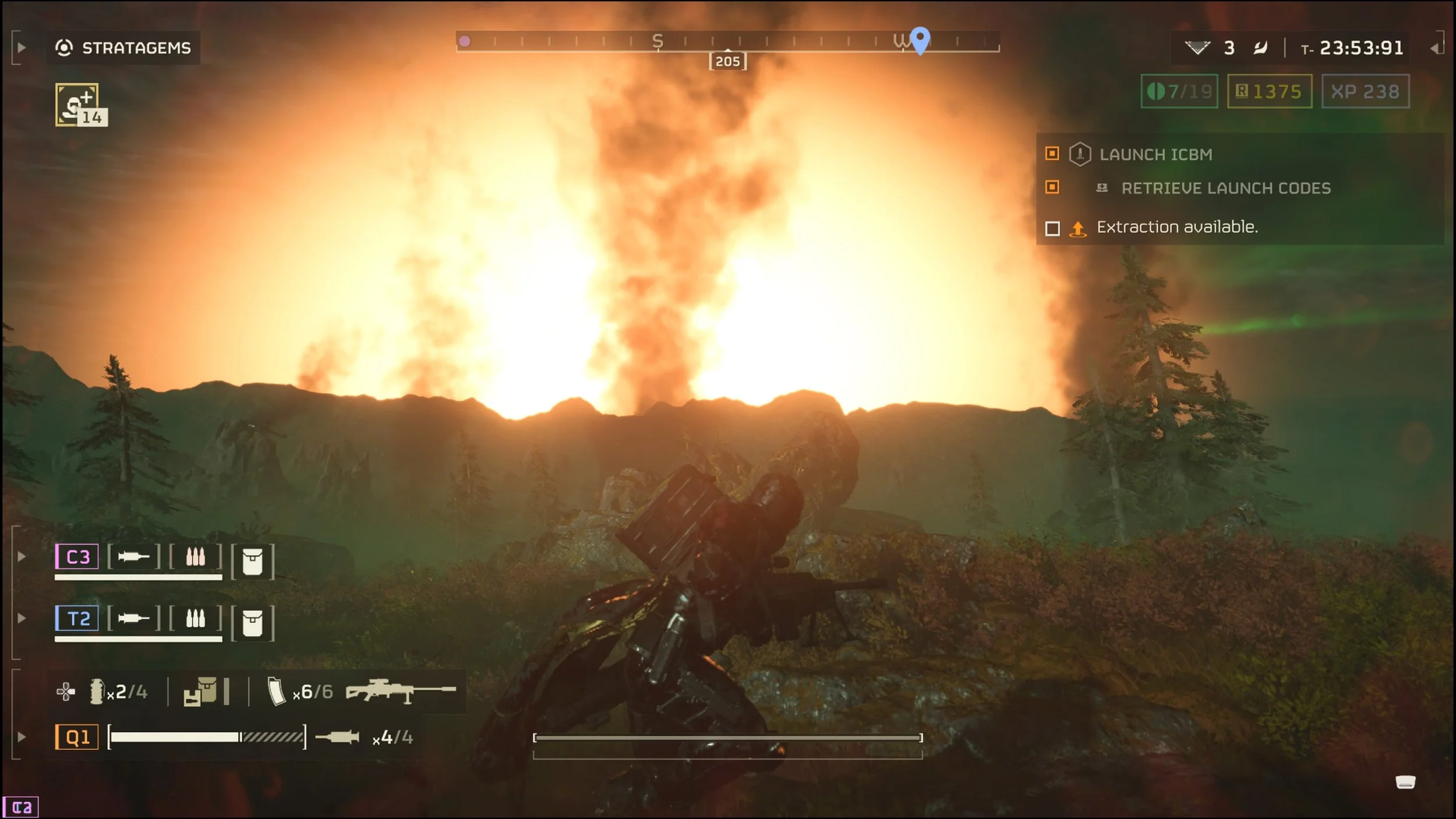



Stellar Blade’s potential was clear, but as its ambitions expanded into something greater, it lost focus. As soon as Stellar Blade tries to bring everything together, it merges into a single figure that looks deformed and uneven. The quality is unquestionable but it wasn’t the final product I was slowly building in my head as I went through the game’s first half.